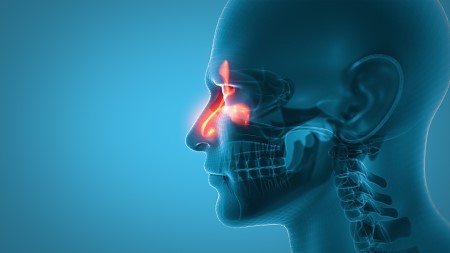If you suffer from allergies, you’re probably familiar with the annoying symptoms that come with them—sneezing, a runny nose, itchy eyes, and nasal congestion. However, many people don’t realize that untreated allergies can lead to a more serious issue: sinus infections. The connection between allergies and sinus infections (also known as sinusitis) isn’t always obvious, but understanding the link can help you manage symptoms more effectively and prevent recurring infections.
How Allergies Affect the Sinuses
To understand how allergies can lead to sinus infections, it’s important to first look at how allergies work. When you come into contact with an allergen—whether it’s pollen, pet dander, dust mites, or mold—your immune system reacts. It sees the allergen as a threat and releases histamine and other chemicals that can cause inflammation and swelling in the nasal passages. This is why your nose feels stuffy or runny during an allergic reaction.
It's also important to know how your sinuses work. The sinuses are air-filled spaces located in the bones around your nose and eyes. Normally, they’re lined with a thin layer of mucus that helps trap dust, bacteria, and other particles. Tiny hair-like structures called cilia help move this mucus out of the sinuses and into your nose, where it’s swallowed or blown out.
Why Allergies Increase the Risk of Sinus Infections
The connection between allergies and sinus infections is primarily due to inflammation. When nasal passages are swollen due to allergies, the openings to your sinuses become narrow or completely blocked. This makes it much easier for a sinus infection to develop, as trapped mucus provides an ideal breeding ground for bacteria.
In fact, chronic allergies can put you at higher risk for recurrent sinus infections. People who suffer from year-round allergies (such as those caused by dust mites or pet dander) or have severe seasonal allergies may find themselves dealing with sinus infections multiple times a year. This constant cycle of inflammation, congestion, and infection can significantly impact your quality of life.
Watch for These Sinus Infection Symptoms
If you suffer from allergies, it’s important to know the difference between allergy symptoms and sinus infection symptoms. The two conditions share many of the same signs, but there are some key differences that can help you tell them apart.
Common allergy symptoms include:
- Sneezing
- Itchy or watery eyes
- Runny nose
- Nasal congestion
Sinus infection symptoms, on the other hand, often include:
- Facial pain or pressure, especially around the nose, eyes, and forehead
- Thick, discolored mucus (usually yellow or green)
- Reduced sense of smell or taste
- Headache
- Fever
- Fatigue
- Bad breath
One major indicator of a sinus infection is the presence of thick mucus and facial pain that lasts for more than 10 days without improvement. If you’re dealing with these symptoms and they persist or worsen, it’s a good idea to see an Iowa ENT Center specialist for a proper diagnosis and treatment plan.
Preventing Sinus Infections When You Have Allergies
The good news is that there are steps you can take to manage your allergies and reduce the risk of developing a sinus infection.
1. Treat your allergies early.
The best way to prevent sinus infections caused by allergies is to keep your allergies under control. This means using allergy medications, such as antihistamines or nasal corticosteroids, as prescribed by your doctor. These medications can help reduce inflammation in the nasal passages, allowing your sinuses to drain properly.
2. Use a saline nasal rinse.
A saline nasal rinse (also known as nasal irrigation) can help clear allergens and mucus from your nasal passages, reducing the chance of a sinus infection. You can use a saline spray or a neti pot to rinse out your nose, especially during allergy season.
3. Avoid known allergens.
If you know what triggers your allergies, do your best to avoid them. This might mean staying indoors on high-pollen days, using an air purifier in your home, or regularly cleaning areas where dust or pet dander can accumulate.
4. Keep your home clean.
Regularly dusting, vacuuming, and changing your air filters can help reduce indoor allergens that trigger your symptoms. If mold is a concern, make sure to address any moisture issues in your home, as mold spores can easily grow in damp environments.
5. Consider allergy immunotherapy.
If your allergies are severe and difficult to manage with medication alone, you might want to talk to an Iowa ENT Center specialist about allergy immunotherapy. This treatment can help desensitize your immune system to specific allergens, significantly reducing or even eliminating your allergic reactions over time.
When to See an Iowa ENT Center Specialist
If you’re dealing with chronic sinus infections or persistent allergy symptoms that don’t respond to over-the-counter treatments, it may be time to consult with Iowa ENT Center. Our team specializes in both allergy management and sinus care. We can help you find relief from recurring sinus infections and create a plan to manage your allergies effectively.
Don’t let untreated allergies lead to more serious issues. Schedule a consultation today by calling us at 515-223-4368 or by requesting an appointment online.
